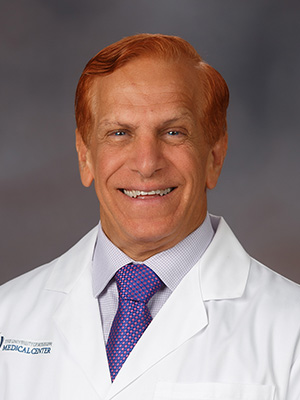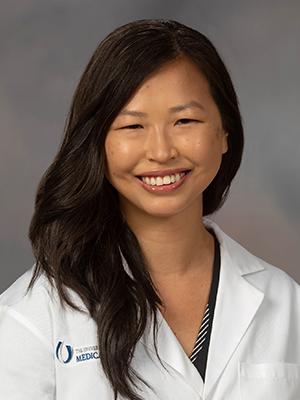Early detection is key to defeating colorectal cancer – even for people under 45
Colorectal cancer is striking people at a younger age, and more of them are dying from it.
For them, the rate of colorectal cancer – the second leading cause of cancer death – has been increasing at a steady pace since the 1990s.
This year, more than 154,000 people in the U.S. will be diagnosed with colorectal cancer; it will prove fatal for nearly 53,000, the American Cancer Society estimates.
Among those diagnosed, about one in 10 will be people who are under the age of 50, but those numbers are going up 1% or 2% each year, while Mississippi’s rates for all colorectal cancer cases and deaths outstrips the nation’s.

“We used to recommend that people get screened by age 50,” said Dr. Faisal Bukeirat, professor of surgery and medicine, and director of the Division of Digestive Diseases at the University of Mississippi Medical Center.
“The recommendation now is age 45.”
In 2022, the latest year for which statistics are available, Mississippi’s screening rate fell to 62.5%, compared to 70% in 2020, reports the Mississippi Colorectal Cancer Roundtable, a coalition formed to encourage more colorectal cancer screenings.
In 2021, Mississippi recorded 44.86 new colorectal cancer cases and 18.16 deaths per 100,000 residents. The national average was 36.5 and 12.8 per 100,000, respectively. Black males have the highest rates in incidence and mortality.
The need for early detection has been underlined by some high-profile deaths in recent years. Among them: actor Chadwick Boseman (“Black Panther”), age 43; and TikTok star Bailey Hutchins, age 26.
Even if you’ve never been diagnosed with colorectal cancer or never detected any of the warning signs, once you reach age 45, you should get a colonoscopy, Bukeirat said.
“It’s a life-saving procedure. And it is available at UMMC.” It saves lives because it involves the removal of any polyps before they turn into cancer.
“Removing the polyps is the best way to avoid this disease,” Bukeirat said.

From age 45, you should get a colonoscopy every 10 years, at least until age 75 – but more frequently if you’re in a high-risk group – which includes people with a personal or family history of colorectal cancer or polyps, said Dr. Kelly Brister, assistant professor of surgery and board-certified colorectal surgeon at UMMC.
“That includes a history of inflammatory bowel disease or inherited genetic disorders such as Lynch Syndrome or Familial Adenomatous Polyposis Syndrome. In those cases also, earlier screening is recommended.”
As many as 1 in 3 people who develop the disease are related to someone who has had it – particularly a parent, sibling or child, the American Cancer Society reports.
Others with a high risk include those who are overweight or obese, have type 2 diabetes, smoke, are moderate-to-heavy drinkers, are physically inactive and favor diets high in red meats.
In any of those cases, you should get a colonoscopy, even before age 45, and do so every five years, not 10 – if not more often, depending on the findings, experts say.
“It’s especially important for African Americans, who have a higher incidence of colon cancer compared to other ethnic groups,” Bukeirat said.
Also, if you have certain symptoms or warning signs, you should make an appointment with your doctor, who may recommend a colonoscopy: “Any time there is blood in the stool, it’s not normal at any age,” Bukeirat said.
Other warnings: rectal bleeding with or without pain, changes in bowel habits such as new onset diarrhea or constipation, and anemia, Brister said.
“Other symptoms would be bloating or a full feeling, and unexplained weight loss or fatigue. If a patient has these symptoms which persist despite change in bowel regimen, we recommend prompt evaluation.
“Patients with early stage colorectal cancer may not have any of these symptoms, or they can be subtle. Therefore, awareness and monitoring for early signs and symptoms is recommended.”
Still, colon cancer in its early stages often has no symptoms, Bukeirat said. “So screening is key.”
The fact is that the number of diagnosed cases in the U.S. has fallen steadily since the mid-80s, mostly among older adults.
“The lower rate of diagnosis for adults older than 50 is attributed to early screening and the ability to intervene early for polyp removal prior to the progression to cancer,” Brister said.
“Therefore, we recommend a colonoscopy for screening, as it is diagnostic and therapeutic.”
Lifestyle changes may also be contributing to the lower diagnosis rate, Bukeirat said.
“Prevention means maintaining healthy body weight, no smoking, avoiding red meat: It’s a major player, because of the way it’s prepared and processed.
“It means increasing physical activity, getting regular exercise. Adopting healthier food choices, such as organic foods and the Mediterranean diet.”
Apparently, such changes are working, overall; yet, colon cancer numbers for younger people continue to worsen, and researchers are trying to learn why.
Many experts, including Bukeirat, suspect environmental causes, such as exposure to radiation and certain chemicals.
“There is a wide range of potentially harmful chemicals in and around households,” Bukeirat said. “Those include substances containing benzene.” This cancer-causing agent is found in crude oil, gasoline, cigarette smoke, detergents, drugs, dyes, some types of lubricants, pesticides and rubber, the Centers for Disease Control and Prevention says.
The U.S. Consumer Product Safety Commission also points the finger at asbestos – no longer used in products made today but present in existing structures and materials made before the ban: steam pipes, boilers and furnace ducts, vinyl floor tiles, textured paints, shingles, automobile brake pads and linings, along with gaskets and clutch facings.
People who are hesitant to schedule a colonoscopy often have misconceptions about it, Bukeirat said.
“They should know that there is a low risk of infection. It’s not painful; there is anesthesia without intubation. Also, you are completely covered during the procedure.”
— — —
For an appointment with an expert in digestive diseases, call 601-984-4540 or 888-815-2005; to make an appointment online, go here or email GIscheduling@umc.edu. Beginning in early 2026, specialists in gastroenterology will see patients at UMMC Colony Park North.
The above article appears in CONSULT, UMMC’s monthly e-newsletter sharing news about cutting-edge clinical and health science education advances and innovative biomedical research at the Medical Center and giving you tips and suggestions on how you and the people you love can live a healthier life. Click here and enter your email address to receive CONSULT free of charge. You may cancel at any time.



